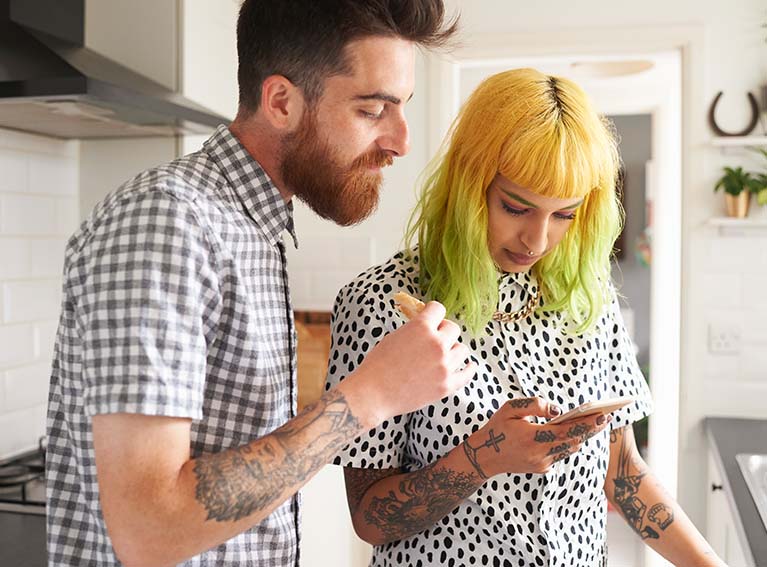Go paper-free
Amend paper-free preferences for your statements and communications.
Find out all you need to know about how a mortgage works, so you can feel more confident when you start house hunting.
You’re going to need to know how much you might be able to borrow.
Use our mortgage calculator to get an idea of the value of property you could be able to afford.
You’ll also get an estimate of what the monthly repayments could be.
Probably one of the most difficult parts of getting a mortgage is saving up for the deposit.
The more you can put down as a deposit, the less you’ll be borrowing. A higher deposit will also lower your loan to value ratio (LTV).
This could increase your chances of getting a mortgage and getting a lower interest rate.
Whether you’re buying alone or with a partner, try setting a monthly saving budget to build up your deposit fund.

Before you start searching for a home, you'll need to know how much you might be able to borrow. You can do this by applying for a mortgage Agreement in Principle.
Applying involves soft credit checks on you and anyone you’re looking to buy with, as well as looking at your financial position and commitments. Learn more about how credit checks work.
A mortgage adviser will be able to discuss the different types of mortgages available.
This isn’t an official mortgage offer, but it’s an indication of how much the lender may be willing to lend you. After you’ve got an Agreement in Principle, you can start house hunting and speak to a mortgage adviser.

Once you’ve found your perfect home and had an offer accepted, it’s time to apply for your mortgage.
At this point, you’ll need to think about what kind of mortgage you want.
Your lender will need to carry out an independent valuation of the property you want to buy. This is to make sure the house is worth what you’re offering to pay for it, and this will be used to work out your loan to value ratio.
If all is well with the valuation and your application has gone smoothly, you’ll receive a mortgage offer. This offer will confirm that the lender is happy to lend you the money and shows the repayment terms.
If you’re happy with your mortgage deal, you’re on the home straight. At this point, all that’s left to do is bring in a conveyancer. A conveyancer will complete the various checks, so you know what you’re buying, and take care of the legal and administrative aspects of transferring property ownership.
The conveyancer will draw up contracts and handle the exchange of these with the seller’s representative. They’ll also sort the payment of your deposit. You can use our Halifax conveyancing service to compare quotes for your legal costs from our panel of up to 200 conveyancers.
Now, you should receive a completion date, after which you’ll be free to start looking forward to moving into your new home.

You’ll pay interest on your mortgage. How much will depend on your mortgage interest rate, how much you borrow and for how long. The quicker you pay off your mortgage, the less interest you’ll pay.
How much you pay back each month will depend on:

Buying your first home is one of the most exciting things you'll do. There's lots to think about, including finding the right mortgage for you. Find out everything you'll need to know when buying your first home here.